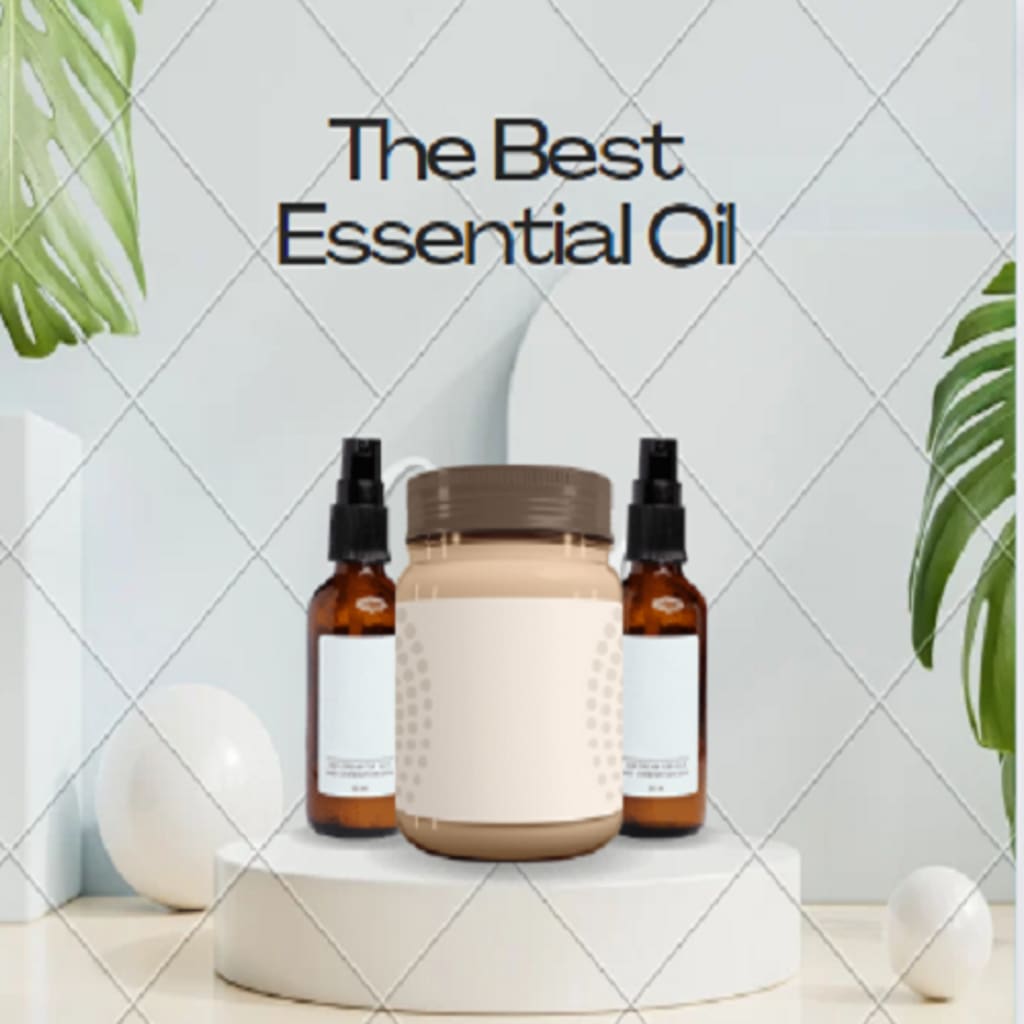Olive Oil and Heart Health: Separating Facts from Myths
Olive oil has been a subject of significant research and discussion when it comes to its potential impact on heart health

Olive oil has been a subject of significant research and discussion when it comes to its potential impact on heart health. Here, we'll separate facts from myths regarding olive oil and its connection to heart health.
Facts:
Monounsaturated Fats: Olive oil is predominantly composed of monounsaturated fats, specifically oleic acid. Monounsaturated fats are considered heart-healthy because they can help lower LDL cholesterol (the "bad" cholesterol) levels when used in place of saturated and trans fats.
Anti-Inflammatory Properties: Extra virgin olive oil, in particular, contains compounds like polyphenols that have anti-inflammatory properties. Chronic inflammation can contribute to heart disease, and consuming foods with anti-inflammatory properties can be beneficial
Antioxidants: Olive oil is rich in antioxidants, including vitamin E, which can help protect cells from damage caused by free radicals. This oxidative stress can be detrimental to the cardiovascular system.
Reduced Risk of Heart Disease: Numerous studies have shown that a Mediterranean diet, which is high in olive oil, is associated with a reduced risk of heart disease. This diet emphasizes whole grains, fruits, vegetables, fish, and limited red meat, with olive oil as a primary source of fat.
Improved Lipid Profile: Consuming olive oil has been linked to improved lipid profiles, including decreased LDL cholesterol levels and increased HDL cholesterol (the "good" cholesterol) levels.
Myths:
Olive Oil Cures Heart Disease: Olive oil can be a part of a heart-healthy diet, but it's not a cure for heart disease. It's essential to maintain a balanced diet and overall healthy lifestyle.
All Olive Oils Are Equal: There are different types of olive oil, including extra virgin, virgin, and refined olive oil. Extra virgin olive oil, with its high levels of beneficial compounds, is the healthiest choice. Refined olive oil may lack some of these beneficial components.
You Can Consume Olive Oil in Unlimited Quantities: While olive oil is heart-healthy, it's still calorie-dense. Overconsumption can lead to weight gain, which can, in turn, increase the risk of heart disease. Moderation is key.
Cooking with Olive Oil Is Harmful: Some people believe that cooking with olive oil at high temperatures can cause it to become unhealthy. While excessive heating can break down some of its beneficial compounds, it is generally safe for cooking at moderate temperatures. For high-heat cooking, it's advisable to use oils with a higher smoke point, like canola or grapeseed oil.
In summary, olive oil can be a valuable part of a heart-healthy diet, but it should be consumed in moderation and as part of an overall balanced diet and lifestyle. Extra virgin olive oil, with its high content of monounsaturated fats and beneficial compounds, is a better choice for heart health. Remember that no single food can magically prevent or cure heart disease; it's the combination of dietary and lifestyle factors that matters most in maintaining a healthy heart. If you have specific concerns about your heart health, it's essential to consult with a healthcare professional or a registered dietitian for personalized guidance.
Olive oil is a popular and widely used cooking oil made from the fruit of the olive tree, scientifically known as Olea europaea. It is an integral part of Mediterranean cuisine and is known for its health benefits and versatility in cooking. Here are some key aspects of olive oil:
1. Types of Olive Oil:
Extra Virgin Olive Oil: This is the highest quality and most flavorful olive oil. It is cold-pressed, meaning it is extracted without the use of heat or chemicals, which helps retain its natural flavors and nutritional benefits. Extra virgin olive oil is suitable for salad dressings, drizzling on finished dishes, and low-heat cooking.
Virgin Olive Oil: Like extra virgin, it is also unrefined and cold-pressed but has slightly lower quality and flavor than extra virgin olive oil. It can be used for cooking and as a condiment.
Pure Olive Oil: This type is a blend of refined olive oil and virgin olive oil. It is less flavorful and suitable for high-heat cooking.
Light Olive Oil: "Light" in this context refers to the oil's mild flavor, not reduced calories. It is often a blend of refined olive oil and virgin olive oil and can be used for frying and cooking when you want a neutral taste.
2. Nutritional Benefits:
Olive oil is rich in monounsaturated fats, particularly oleic acid, which is considered heart-healthy. It also contains antioxidants, such as vitamin E and polyphenols, which can help combat oxidative stress and inflammation in the body. Additionally, it has been associated with improved lipid profiles, including lower LDL (bad) cholesterol levels.
3. Culinary Uses:
Olive oil is incredibly versatile in the kitchen. It can be used for:
Dressing salads.
Drizzling over roasted or grilled vegetables.
Sauteing and stir-frying at moderate temperatures.
Making marinades and sauces.
Baking and grilling.
Enhancing the flavors of various dishes, including pasta, pizza, and bread.
4. Health Benefits:
Consumption of olive oil has been linked to various health benefits, including:
Improved heart health: Olive oil is associated with reduced risk factors for heart disease.
Anti-inflammatory properties: It contains compounds that may help reduce chronic inflammation.
Antioxidant effects: Olive oil's antioxidants can protect cells from damage.
Better digestion: It may aid in digestion and reduce the risk of gallstone formation.
5. Quality Matters:
When purchasing olive oil, especially extra virgin olive oil, it's important to look for reputable brands and consider factors like origin, freshness, and storage conditions. Quality can vary significantly between brands, so it's worth investing in a high-quality product for maximum flavor and health benefits.
In conclusion, olive oil is a versatile and healthy cooking oil that has been a staple in Mediterranean diets for centuries. It offers numerous health benefits, particularly when used as a replacement for less healthy fats in your diet. Whether for cooking or as a finishing touch on your dishes, olive oil is a valuable addition to your kitchen.
About the Creator
lovel cute
lovelcute in international Healthy blog do you want read Articles about health fitness and beauty tips please go to the lovelcute blog post






Comments
There are no comments for this story
Be the first to respond and start the conversation.